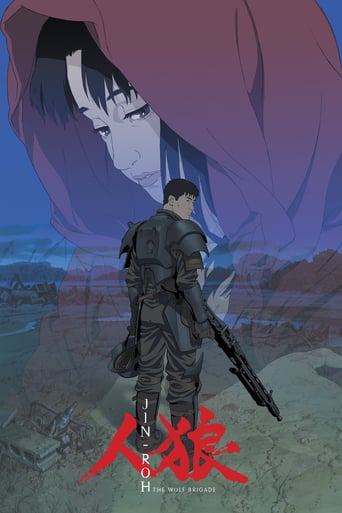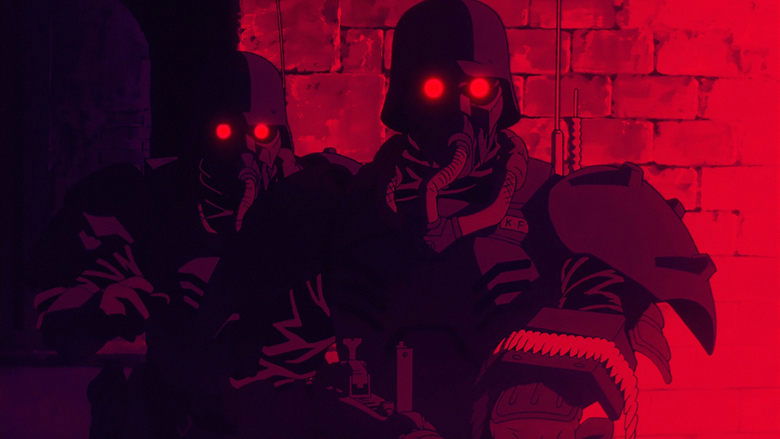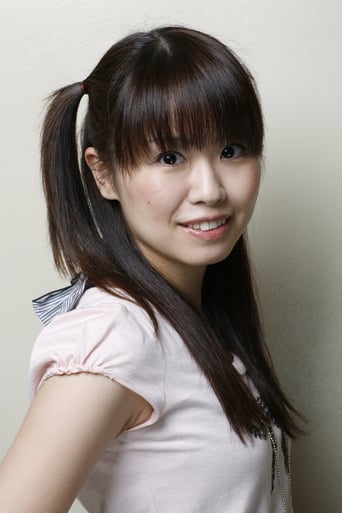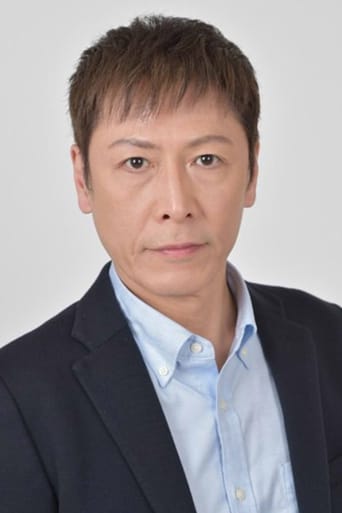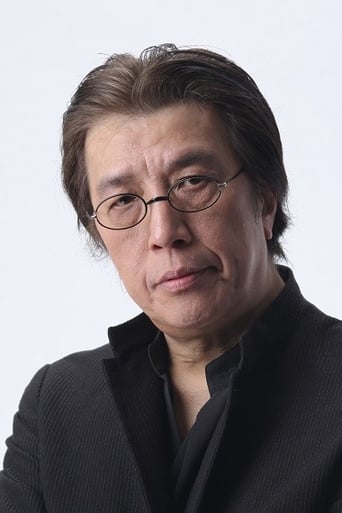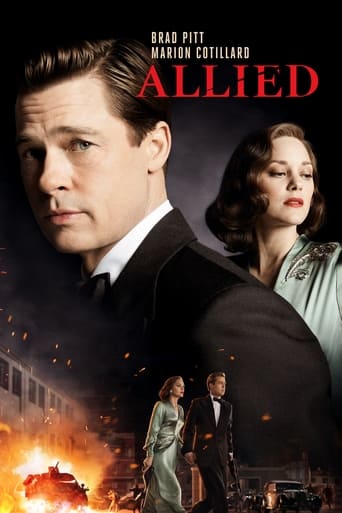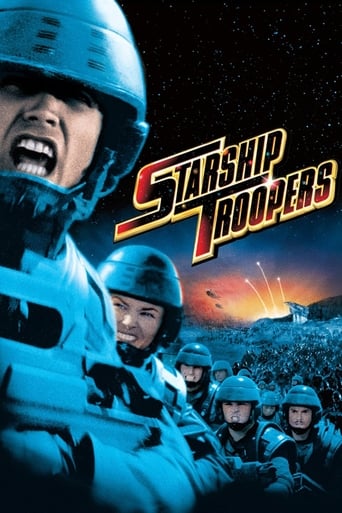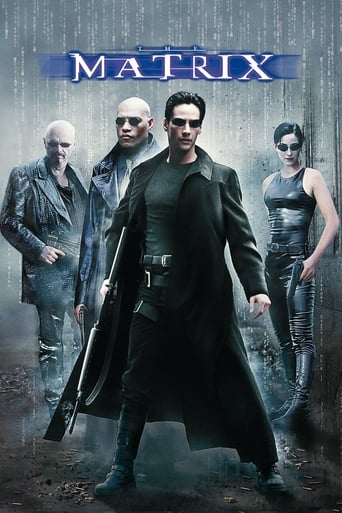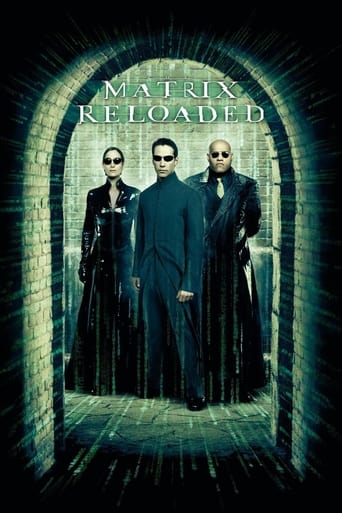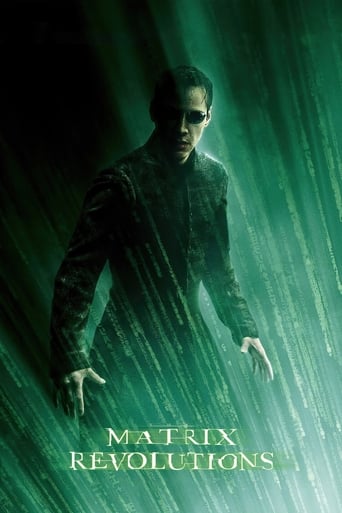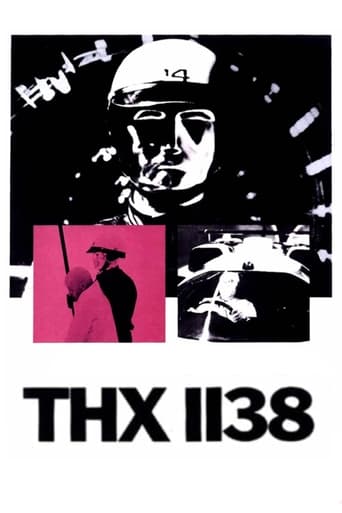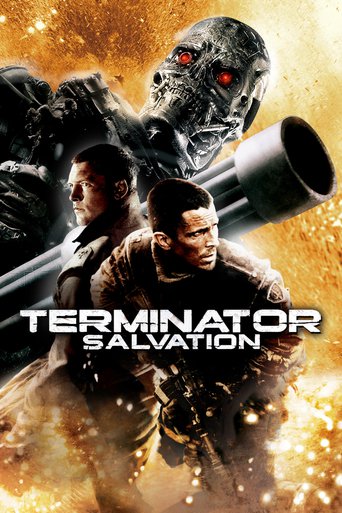Jin-Roh: The Wolf Brigade (2001)
A member of an elite paramilitary counter-terrorism unit becomes traumatized after witnessing the suicide bombing of a young girl and is forced to undergo retraining. However, unbeknownst to him, he becomes a key player in a dispute between rival police divisions, as he finds himself increasingly involved with the sister of the girl he saw die.
Watch Trailer
Cast


Similar titles
Reviews
I like movies that are aware of what they are selling... without [any] greater aspirations than to make people laugh and that's it.
Great movie. Not sure what people expected but I found it highly entertaining.
The acting is good, and the firecracker script has some excellent ideas.
An old-fashioned movie made with new-fashioned finesse.
Jin-Roh: The Wolf Brigade, written by Mamoru Oshii (Angel's Egg; Ghost in the Shell) and directed by Hiroyuki Okiura, conveys an alternative world in which the Japanese had collaborated with the Allies of World War II instead of the Axis powers. After the conclusion of this version of the war, Germany occupied Japan in a way similar to how America did in our timeline. This fictive setting allows criticism on the post-war policies of Japan and encourages the Japanese viewing audience to rethink normalised conservative dispositions. The main topic of this essay is to explore the way in which this criticism is formalised in the film.>Firstly, Greenhill and Kohm point to the effect of the leitmotif of little red riding hood in Jin-Roh, namely indicating the problematic aspects of 'absolute truth' as a linear construct (2013). Utilising this perspective is a valuable point of view to analyse the social criticism of Oshii and Okiura's work. Furthermore, this approach has the advantage of presenting a starting point for a Western film theorist, since Rotkäppchen was originally a German folk story, thus eliminating some of the traps that are inherent to cross-cultural studies. For example, it is not appropriate to position Japanese filmmakers in a symptomatic study and thereby attributing Western values to their work (Yoshimoto, 1991). This study clearly shows -as a preventative measure- that it is a Western interpretation of the film text and does not pretend that it corresponds to the original intention of both Mamoru Oshii and Hiroyuki Okiura.Additionally, this essay fits in with the more optimistic side of the Frankfurter school and the associated critical theory. It assumes, in the legacy of Kracauer and Benjamin, that even productions from the cultural industry can be a source of social criticism and critical self-reflection. The Japanese philosopher Tosaka Jun shares this view, as evidenced by his definition of culture as a 'mirror for critical reflection on morality' (Shimizu, 2014). In addition, social scientists such as Shimizu have shown that this definition is applicable for film analyses (2014).In contrast, the original Frankfurter School would label the audience of Jin-Roh as a passive, holistic and homogeneous mass that would not reach the deeper level of the reading of the film text; the upper limit would consist of recognising the red riding hood reference. Any possibility of a more profound understanding would probably have been written off, in which case the film would lose its potential for self-reflection. Due to the breakthroughs film theory has made in the 20th century, social scientists have changed their perspective on the audience, who are now regarded as autonomous and active participants that have various options in decoding a media text (Hall, 1980).Immediately after the end of World War II, there was a lot of protest, especially from the Left Students, yet over the years the conservative policy has been normalized and the hegemonic veil must be broken. In this respect, the film text is primarily a critique of the 'dictatorship' of the Liberal Democratic Party (ironically the conservative party) that lasted from 1955 (the establishment of the party) up to and including today (other parties were in power only in the short periods 1993-1994 and 2009-2012). This almost universal presence denied any possibility of change, as the status quo was always defended. The main theme of the film is the internal conflict between the need to belong - even more important in a collectivist society like Japan- and the attractiveness of change to facilitate progress.The fairy-tale of the Red Riding Hood, here specifically Rotkäppchen - the oldest version of the story, is intertwined throughout the film. Firstly, it is present from the opening scene, spoiler: click to readIn contrast to the superficial understanding of a passive viewer, a deeper reading of this narrative element indicates a metaphorical meaning to the red cap motif. Specifically the possibility of change in a situation where the conservative government does not allow for it and even actively bypasses it. This interpretation is most typified in the scene spoiler: click to read In a collectivist society like Japan no one can inhibit the goals of the pack.A government based on this collectivist system should not contain internal conflicts. However, in the absence of a national army - dissolved after the end of the Second World War (by either the Germans or Americans depending on which timeline), there was a need for other institutions to protect public order. In Jin-Roh these institutions are depicted more radical and violent, but there is no presence of foreign troops, as is still the case in Japan thanks to the 1951 US-Japan security treaty. In this respect, the film text therefore differs from a more nationalistic critique (cf. Yukio Mishima) and only criticizes the internal organisation. In this way it avoids a hypocritical attitude with its criticism on the conservative policy of post-war Japan.>To conclude, Jin-roh is a film text that offers active viewers an opportunity for self-reflection, which corresponds to the beneficial aspects of media that Kracauer and Benjamin highlighted in their theories about film, which reconciled critical theory with cultural studies to activate the concept of the 'passive viewer'.First of all, the leitmotif of Red Riding Hood is a critique on the stubbornness of the conservative policy of Japan since the end of the Second World War. Subsequently, the complicated political plot is a critique of the obfuscated workings of the bureaucracy (similar to the criticism in Ikiru by Akira Kurosawa). It is an analysis of Japanese institutions that had to protect public order in the absence of a national army, in this respect the situation of the film corresponds to the real history of Japan. As a result, the mixture of similarities and differences in the alternative history of Jin-Roh can serve as a mirror for the socio-political reality of contemporary Japan.Greenhill, P., & Kohm, S. (2013). Hoodwinked! and Jin-Roh: The Wolf Brigade. Marvels & Tales, 27(1), 89-108. Hall, S. (1980). Encoding/Decoding. In S. Hall, D. Hobson, A. Lowe, & P. Willis (Eds.), Culture, media, language: working papers in cultural studies, 1972-1979 (pp. 128-138). London: Routledge.Shimizu, K. (2014). The Ambivalent Relationship of Japan's Soft Power Diplomacy and Princess Mononoke: Tosaka Jun's philosophy of culture as moral reflection. Japanese Journal of Political Science, 15(4), 683-698. doi:10.1017/s1468109914000309Yoshimoto, M. (1991). THE DIFFICULTY OF BEING RADICAL, THE DISCIPLINE OF FILM STUDIES AND THE POSTCOLONIAL WORLD-ORDER. Boundary 2-an International Journal of Literature and Culture, 18(3), 242-257. doi:10.2307/303211
I first remember watching Jin-roh: The Wolf Brigade when I was only a kid. It was aired on channel 4 in the UK as a part of its Japan season, as I was only a kid and it was on very late ...well I missed. But then yesterday after a long time, I saw all of it! It is easy to understand why it won all the awards at various film festivals, being that the director is the someone who gave us Ghost In The Shell and this film is nothing short of brilliant in its own field. Set in an alternative Japan just after its defeat in the Second World War , the plot focus is on a special constable(Kazkui Fuse) of a special paramilitary, anti-terror unit dispatched to control an underground terrorist/revolutionary movement known as 'The Sect'. During a mission in which a young lady is killed, Fuse is blamed for incompetence and is sent back to the academy for re-training and whilst at the academy he decide's to learn a bit about the dead girl with the help of her sister but not all is what it seems! Don't be expecting a very action packed , martial arts , all guns blazing and sexy siren flick! no , no ,no! Jin-Roh is a cleverly constructed anime with a love story, politics, and a fairy tale all inter-woven together. One thing that did spring into my mind was that unlike most anime, this one actually uses long pauses and uneasy silences very well with a great depressing tone to it. One cannot help but sympathise with Fuse as we can see that he is a man wanting to reach out for something but is unable to do so as it is inability to socially interact with others is almost very apparent but then his instructor reminds us that for some it is easier to live like beasts, rather than humans and we are constantly reminded that through from the directors references to the Little Red Riding Hood story to the full moon appearing in the back ground which shows us that they are beasts that walk amongst us as men . To conclude Jin-Roh is probably one of the most grim depictions of the human race but it is also one of the finest anime I have watched and it is one hell of a way to do the first anime review. My only complaints were that it was a bit short and I would of liked to see a little more deeper insight into Fuse's character. You don't have to be a follower of the Kerbroras Panzer Corps saga to watch this as it stands out on its own pretty well. Highly recommended to fans of anime or not.JIN-ROH: THE WOLF BRIGADE 8.1 OUT OF 10TALES BETWEEN HUMANS AND BEASTS ARE BOUND TO END IN TRAGEDY!
Jin-Roh, is a very impressive movie from a technical stand point. What is perhaps, most impressive about it, is the plot twists as well as the story. Jin-Roh gives new meaning to the word "Betrayel". It's truly a frightening movie from that point of view. It has a strange artistic look to it. It doesn't seem very Japanese. It's much to dark, gloomy and depressing. The action is far and in between, but when it comes, it is very good. The plot is not the most important thing about the movie. It's more the relationship between the characters. I guess, to be fair, the weakest aspect of Jin-Roh, is definitely that it can feel very slow and stretched out. It has this calm and gritty feel to it, but when things start to happen, the viewer sits on the edge of their seats and wait what will happen.Jin-Roh is betrayal in a movie. It's a very unique anime that totally goes away from the anime mainstream, which makes it difficult to compare it to anything actually. And while it may be slow and a bit at drag at time, it's definitely worth watching, just for the sake of it.7/10
I actually found the animation to be lacking. Maybe I am used to the latest Japanese animes that capture everything perfectly from expression to little details. That is not saying that it has bad animation, just that it looks like Akira, even if it is made in '98.The story is great. I liked both the storytelling as the story itself, with many unexpected twists and (well, it IS Japanese) a very depressing atmosphere. The soundtrack is nice, too, as many people noticed.What this movie is about is what it is to be human in an inhuman world. I think they specifically chose such a detailed yet alternate world to put the setting in. It is not science-fiction, is ultra-reality. It shows not the beauty of the world, but the place where we all sit to look through the window at a beautiful world that doesn't exist. The worldly waiting room.It would be pointless to repeat who the characters are and what they do. Enough to say that this is a must see for anime fans as well as any other cinema lovers. If you want something bloody and pointless, watch something else.I can compare it with Grave of the Fireflies, although it wasn't THAT heartbreaking, or with Akira. It also feels a lot like Natural City.

